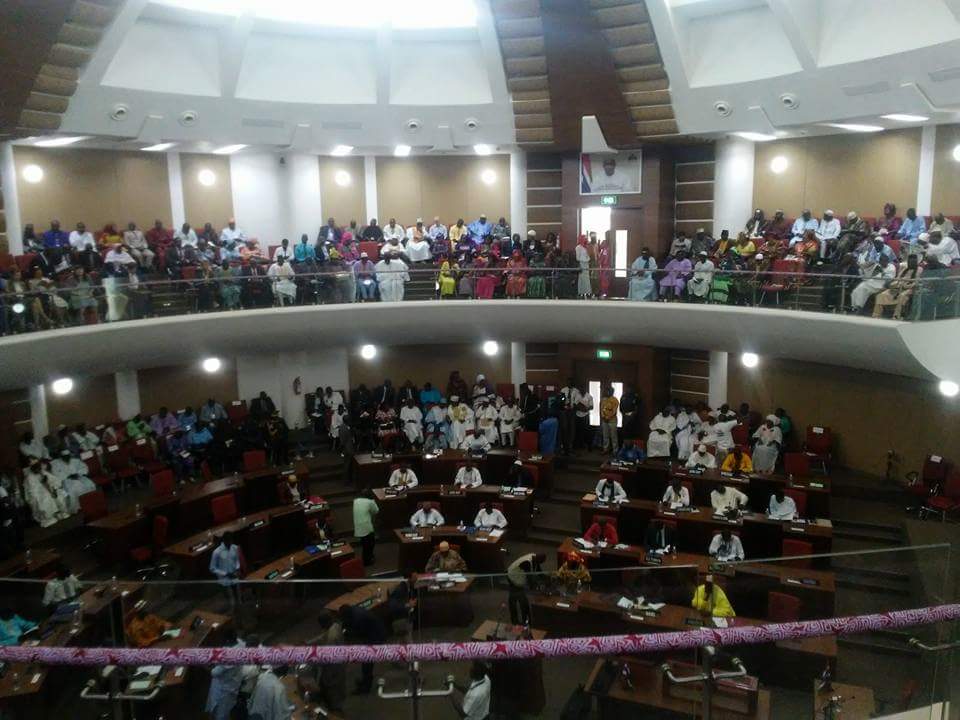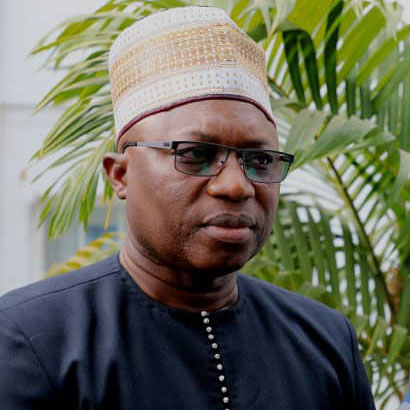By Dr. Ousman Gajigo
As the cement crisis continues in the country, the government continues to remain largely silent and negligent in its duties. Occasionally, though, we are treated to statements by government officials that beggar believe.
The Foroyaa newspaper recently paraphrased, Mod Ceesay, the Permanent Secretary at the Ministry of Trade and Industry was paraphrased as follows: “he (PS Mod Ceesay) defended the policy saying it is aimed at promoting and protecting cement importers from Europe as it benefits government in terms of foreign exchange, creates jobs and enhances competition in the market.” The policy that Mr. Ceesay is defending is the imposition of the import duty on bagged cement targeted at small-scale traders that has caused prices to shoot up and created shortages.
The idea that a permanent secretary would utter such erroneous statements sounded unbelievable to me. So, I contacted Mr. Ceesay directly. While he indicated he had a long conversation with the Foroyaa newspaper, he unfortunately didn’t dispute the claim that the newspaper attributed to him. I took the opportunity presented by the meeting with Mr. Ceesay to gain further insight into the government thinking behind the policy.
Unfortunately, I came away blown away by the poor level of economic analysis that led to this terrible policy. Furthermore, I also came away convinced that we need more qualified personnel at key positions such as permanent secretary level because my experience with interacting with those currently occupying such positions has been dispiriting.
Here is a bit of background. Most of these 3 big importers (GACEM, Jah Oil and Salam) import cement from Spain and Morocco, while our small-scale importers import mostly from Senegal.
The fact that we have a common external tariff with Senegal, in addition to the greater distance from Spain and Morocco, has made it possible for the small-scale importers to be able to sell cement at a much lower price.
The 3 large importers claimed that this reality is an unlevel playing field. More shockingly however, the government sided with them. The owners of GACEM are Europeans, so I’m surprised they are sourcing their cement from European countries. But this decision was not forced upon them.
The fact that the government bought such a flimsy story is what continues to make me suspect that some nefarious activities must have taken place where some government officials were probably bribed. Otherwise, one would have to conclude that our senior policymakers in government are too gullible and unqualified to have any role in policy making.
The fact that the 3 big firms decided by their own accord to import from a market that is of higher costs is purely of their own making. To the extent that the playing field is unlevel is a direct result of their actions. Why must their competitors and consumers be made to pay for a choice that was not coerced?
Why did the government feel the need to reintroduce a Jammeh-era policy of cement import duty? According to Mr. Ceesay, these big 3 firms were suffering losses. I pointed out to him that not only is this claim false, but a report by the Gambia Competition and Consumer Protection Commission (GCCPC), which is an agency under his own Ministry, prepared a report contradicting him.
That cement market study showed that the 3 big firms account for two-thirds of the market. When asked for evidence that some of the companies were experiencing losses, the PS could only point to Jah Oil closing a store in Farafenni. The fact that a few stores are being closed is apparently sufficient data for PS Ceesay, never mind that this is being done by fast-expanding and diversified business. I was momentarily left speechless.
Going back to the original highlighted claim by PS Ceesay, there is so much that is factually wrong in that paragraph. And it reveals how gullible the government officials have been when they were approached by the big 3 cement importers (GACEM, Jah Oil and Salam). First of all, our whole cement sector is import-based. Whether the cement is imported by bulk importers (GACEM, Jah Oil and Salam) or the small-scale investors, the product is imported.
The act of import uses up foreign exchange reserve, rather than saving it. The only way we could be saving foreign exchange is if some of our businesses manufacture cement. But as I have been saying for weeks now, we do not have a single company in The Gambia that manufactures cement.
Apparently, very senior government officials in a critical ministry such as the Ministry of Trade actual believe the fiction that some companies are carry out cement processing. Can’t these officials go out of their air-conditioned offices and visit the Kanifing Industrial Areas and see for themselves?
There are some government officials who are aware that these cement firms are not currently doing any processing. For those officials, these 3 big importers have a different version of their lie.
This is the claim that while they are not currently processing, they expect to do limited processing by importing clinker and completing the last processing step to produced finished cement. The problem with this claim is that these same firms have been enjoying such protection under Jammeh for years. If it were really the case that they needed this protection to upgrade from bagging to processing, it should have already happened.
GACEM has been in businesses for several decades. Salam has also been in operation for at least 10 years. The youngest among them, Jah Oil, entered the cement market in 2011, which means it has been in the market for 8 years. In other words, these companies have been enjoying protection for years, which should have been sufficient time to make the needed transition to limited processing.
There is also no evidence that the 3 bulk importers (GACEM, Jah Oil and Salam) were unprofitable and at the risk of laying off workers. As mentioned earlier, these 3 companies accounted for two-thirds of the market and were (and continue to be) highly profitable. In fact, the imposition of the import tariff on small-scale importers is more likely to cause job losses among these small businesses since they are likely to be pushed out of the market.
Since the 3 bulk importers do not have the capacity to supply the whole market, the import duty predictably led to a shortage. Rather, all it accomplishes for these big companies is to increase their profits through higher prices.
Neither PS Ceesay nor anyone in government has provided a shred of evidence that they have saved any jobs with this protection. Apparently, they have zero regard for the suffering endured by consumers (the largest stakeholders, by the way) and to the small-scale importers.
The final misleading claim in Mod Ceesay’s claim is that the import duty would increase competition. A market becomes more competitive from having more sellers rather than fewer since this would reduce the likelihood that any individual seller would have market power over price. By imposing taxes that push small-scale businesses to close so that the 3 big companies can have the whole market to themselves reduces competition.
As a result, the Gambian cement market has been moved from a situation of limited competitiveness to one of an oligopoly where these 3 big players can effectively collude at the detriment of consumers. This is basic economics that is taught within the first year of university. The fact that the second highest official in the Ministry of Trade and Industry is spouting such nonsense is incredibly disappointing.
What this cement crisis demonstrates is that the Barrow government has major problems not only because it has key Jammeh era individuals in critical positions but these individuals are also helping to re-introduce unfortunate ideas from the previous regime. Compounding this problem is the fact that Barrow seems to go out of his way to elevate certain individuals within this group who has reputation neither for excellence nor accomplishment.
The cement import duty is the kind of policy whose effects would have been quite easy to predict based on information that is publicly available on the sector, as well as basic knowledge of economics.
Or just common sense and integrity. But PS Ceesay attempted to convince me this required some complicated analysis and data and that it would take many months before the real effects of the policy would be understood. It is as if government officials are inhabiting a different universe.
The problem goes well beyond one PS – after all, Mr. Ceesay only recently assumed his position in the Ministry of Industry and Trade. The more I learnt about how this particular policy was formulated and the faulty reasonings behind it, the more convinced I am that this cement crisis is going to be one of many avoidable disasters that this Barrow government has in store for us.
In the meantime, there is something we can do rather than just wail helplessly in agony. Since the government has so far failed in its responsibilities, small-scale cement importers and other concerned Gambians need to take the next appropriate step.
I urge them to launch protests at the relevant government ministries, including the Ministry of Finance and Ministry of Trade and Industry. We need to let the government know that it cannot cause the majority of Gambians to suffer just to please a few connected businessmen.
Ousman Gajigo is an economist. He has held positions with the African Development Bank, the UN, the World Bank and Columbia University. He holds a PhD in development economics. He is currently an international consultant and also runs a farm in The Gambia.




